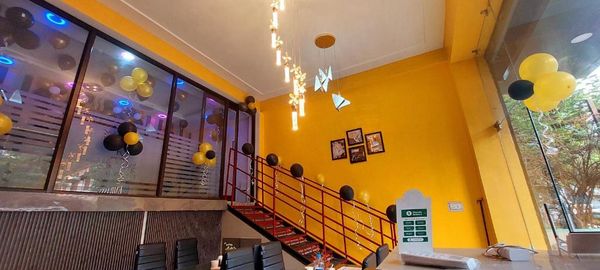Barista training Stages and principles
 Velma Martinez
21 Jan, 2025
5 mins read
32
Velma Martinez
21 Jan, 2025
5 mins read
32

Barista training is essential for anyone interested in working in the Tiny Footprint Coffee (Hotel, Restaurant, Cafe) industry. A well-trained barista can significantly impact the quality of the coffee you make, the overall impression your customers have, and therefore the revenue and profits of your coffee shop or restaurant. In this article, we will look at the basic steps and principles of barista training.
Barista training is essential for anyone interested in working in the Tiny Footprint Coffee (Hotel, Restaurant, Cafe) industry. A well-trained barista can significantly impact the quality of the coffee you make, the overall impression your customers have, and therefore the revenue and profits of your coffee shop or restaurant. In this article, we will look at the basic steps and principles of barista training.
Stage One: Introduction
The first stage of barista training is an introduction to coffee and its history. Students learn about the different types of coffee beans, the different brewing methods, and the importance of freshness and quality. At this stage, students are also introduced to the equipment used in making coffee, such as espresso machines and grinders.
Step 3: Frothing Milk and Latte Art
The third stage of barista training focuses on milk preparation and latte art. Students learn to steam milk to the right temperature and consistency for different types of coffee drinks. They also learn how to create latte art designs, such as hearts and roses, using a specific method of pouring milk foam.
Stage Four: Service and Workflow
The fourth and final stage of barista training focuses on customer service and workflow. Students learn how to interact with customers, take orders, and manage workflow effectively. They also learn the importance of cleanliness and hygiene in a coffee shop environment.
Principles of Barista Training
There are several key principles that underpin effective barista training:
Consistency:
A well-trained barista should be able to produce consistent results every time. This requires an understanding of how espresso is made and a commitment to following established protocols.
Attention to detail:
Attention to detail is critical when preparing coffee. Baristas must be able to accurately measure and time drinks, bring milk to the right temperature and consistency, and present drinks in an appealing way.
Creativity:
While consistency is important, a skilled barista should also be able to be creative with their coffee preparation. This includes creating latte art and experimenting with different brewing methods and beans.
Customer Focus:
A good barista understands that their job is not just about making coffee, but also about providing excellent customer service. This means being attentive to customers’ needs, communicating with them in a friendly and professional manner, and ensuring that their coffee experience is a positive one.
Continuous learning:
The coffee industry is constantly evolving, with new brewing methods, equipment, and coffee beans being introduced all the time. A good barista should be committed to continuous learning and staying up to date with the latest trends and developments.
In conclusion, barista training is essential for anyone who wants to work in the coffee industry. A well-trained barista can make a huge difference to the bottom line of your coffee business. By following the steps and principles outlined in this article, trainees can develop the skills and knowledge needed to become a skilled and successful barista.
Written By:
Velma Martinez



Hotels at your convenience
Now choose your stay according to your preference. From finding a place for your dream destination or a mere weekend getaway to business accommodations or brief stay, we have got you covered. Explore hotels as per your mood.


